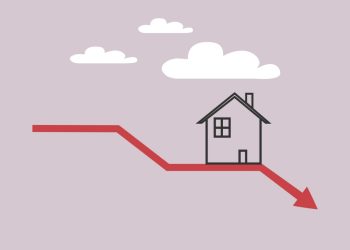Paralyzed by option overload, many homebuyers turn to real estate agents for personalized recommendations on everything from a mortgage loan officer to a home inspector. That might make you wonder: just how much do I know about the jobs of the professionals I recommend to my clients? And just how much does that affect their home-buying experience and, in turn, my success as an agent?
Your recommendation for a good home inspector, for example, could mean the difference between a painful or painless home inspection for your client. So, if your goal is to become a more informed and well-rounded agent, for starters, get to know the who’s who of home inspectors in your area—this alone can be a big leap down the path to success. After all, knowledge is power.
Next, familiarize yourself with the biggest reasons that home inspections fail—here are the ones that usually grace the top of any good home inspector’s report:
- Foundation problems
- Roofing issues
- Plumbing or pipe problems
- Electrical issues
- Building code violations
- HVAC problems
- Mold
- Termites and other pests
- Window and door issues
- Toxic materials (e.g., asbestos, lead paint, radon, carbon monoxide)
- Structural issues
- Drainage problems
Just skimming that list is enough to make your client feel overwhelmed—home inspections often bring uncertainty, both about what might be found and about how the buyer will react. But it’s important for you to keep yourself—and your client—calm, which includes preparing for all possibilities.
Part of that preparation means building relationships with your business partners; in other words, talk to them—regularly. Here are the top three questions I recommend asking a home inspector:
- Who is your ideal client? I want to make sure I’m pairing you with the clients that also fit into your wheelhouse.
- What can I do or say in advance with my clients that will make your job easier?
- Are there any best practices that you do that I should add to my process to make this easier for all parties involved?
You should also read online reviews, and ask the inspector for a sample report to get an idea of what kind of information they typically provide.
Additionally, make sure your contacts satisfy the following criteria, all crucial pieces that make up a good home inspector.
- They’re certified or licensed, depending on your state. I’m partial to AHIT graduates, as their education is thorough and consistent.
- They’re members of a professional home inspection association, such as the American Society of Home Inspectors or the International Association of Certified Home Inspectors.
- They have access to advanced technology (e.g., infrared; electronic radon monitors; gas leak detection; etc.).
- They can give a detailed quote.
- They have a strong professional network in your area.
The home inspection process can be complicated and stressful, between those long and detailed reports and the fact that home inspectors don’t cut into walls or look in pipes, which always leaves some unknowns. And that’s in addition to the general anxiety your buyers are already feeling by purchasing a new home. But, when you know what to expect, and you have one (or two or three) home inspectors you can trust, you’re already armed with the knowledge and confidence you need to successfully support your clients.
For more information, visit https://www.theceshop.com.












